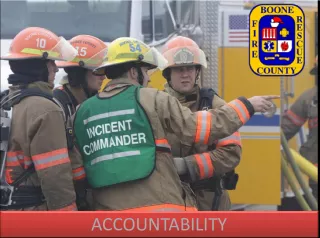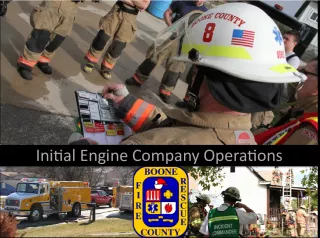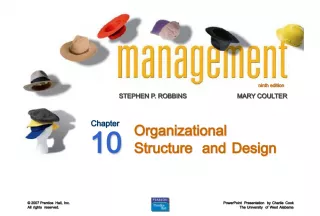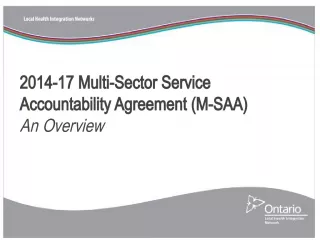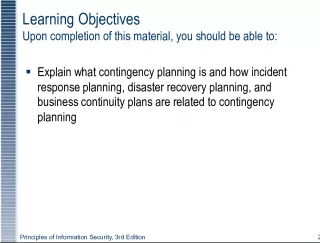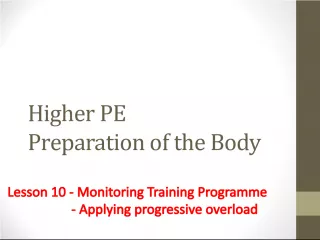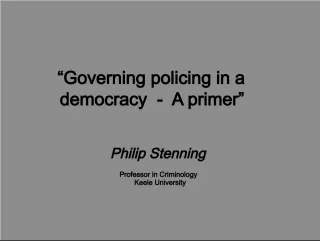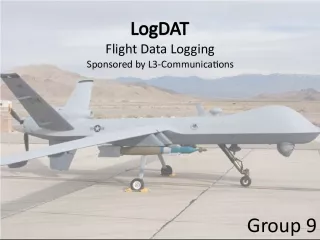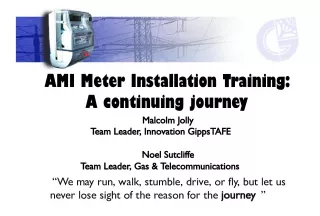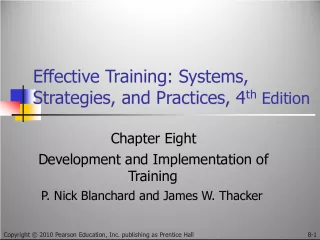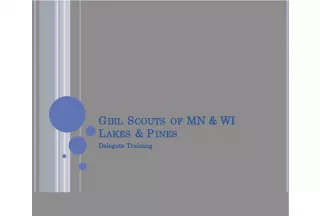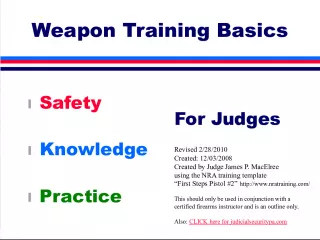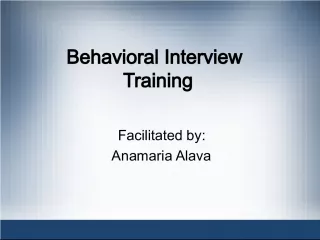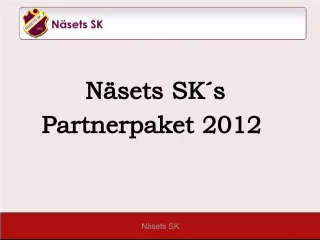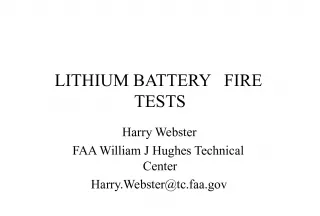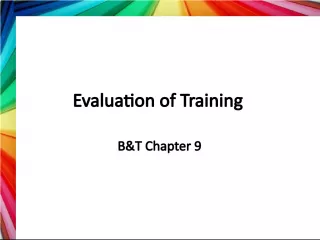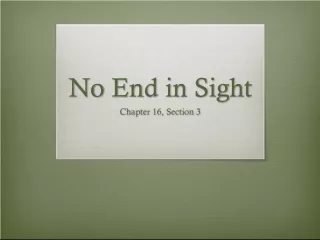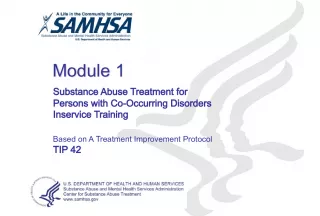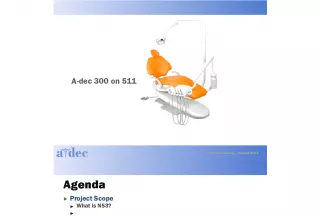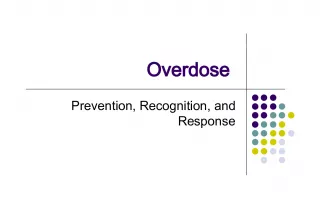Firefighter Training: Importance of Communications, Accountability and Incident Command
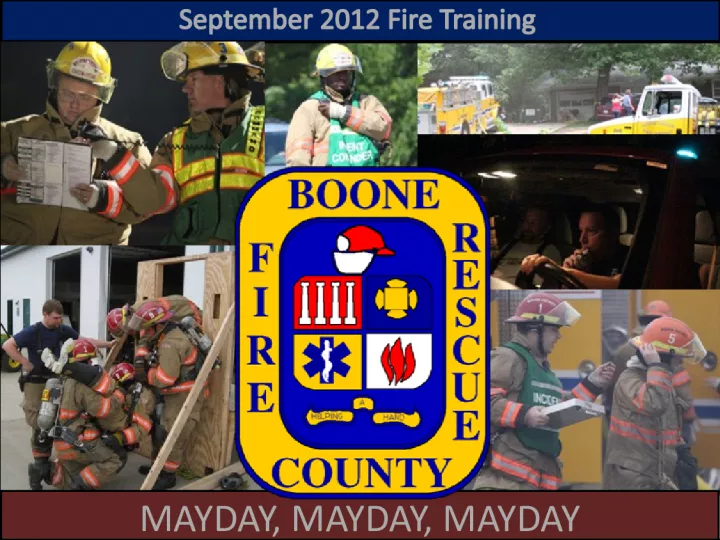

In September 2012, the Fire Department of the local area conducted a training for firefighters to practice the MAYDAY call, which is a universal call for firefighters to
- Uploaded on | 1 Views
-
 yulianna
yulianna
About Firefighter Training: Importance of Communications, Accountability and Incident Command
PowerPoint presentation about 'Firefighter Training: Importance of Communications, Accountability and Incident Command'. This presentation describes the topic on In September 2012, the Fire Department of the local area conducted a training for firefighters to practice the MAYDAY call, which is a universal call for firefighters to. The key topics included in this slideshow are . Download this presentation absolutely free.
Presentation Transcript
Slide1September 2012 Fire TrainingMAYDAY, MAYDAY, MAYDAY
Slide2Practice Size-up6301 Penny Lane 290 E. Roy Barnes Rd.
Slide3Why are we here?• Upcoming MAYDAY training with CFD • Introduction/Refresher to communications • Tying it all together • Accountability • Incident Command • Initial Engine Company Operations • Fire Behavior • Apparatus Staging • Radio Discipline
Slide4•2012 LODD – 52 firefighters total A firefighters survivability in the hazard zone, is totally dependent on an effective size-up and managing air supply
Slide5October Fire Training• Scenario Based on Managing the MAYDAY – Air management techniques – Incident Command responsibilities – Crew resource responsibilities BCFPD-CFD Joint Training
Slide6Reasons for Firefighter Deaths and Injuries• Poor size-up (Primary and Secondary) • Improper tactical decisions • Failure to recognize rapidly deteriorating conditions – Lightweight building construction – Increased fire load • Lack of strong Incident Command • Freelancing • Lack of training
Slide7Changing Fire Conditions• How will changing fire conditions contribute to a firefighter Mayday situation? • NIST studies • Underwriters Laboratories – What are these studies telling us?
Slide8When are Mayday’s occurring?• First crew inside the structure – What potential issues does this scenario have? • Overhaul – What about this scenario?
Slide9Notable EventsBrett Tarver Southwest Supermarket Kyle Wilson Prince William County Virginia Hackensack New Jersey Charleston Sofa Super Store
Slide10Hackensack Ford July 1, 1988 • 14:59 – Initial Dispatch • 15:08 – Ladder company ordered to vent the roof. • 15:09 – Observed “brown smoke” in the attic. • 15:22 – “Fire in the vent hole” • 15:34 – Crews ordered to “back your lines out” • 15:36 Bowstring Arch Truss Collapse – Captain Richard Williams – Lieutenant Richard Reinhagen – Firefighter William Krejsa – Firefighter Leonard Radumski – Firefighter Stephen Ennis
Slide11•At 15:39, Lieutenant Reinhagen began to radio his location and appeal for help • 15:42 – “You have to hurry, we’re running out of air.” • Dispatch radioed the Incident Commander (Chief Williams) with no response. • Over the next 6 minutes, Reinhagen made 10 more calls for help with no answer. • 15:49 - “Chief, this is Lieutenant Reinhagen. I’m still stuck back in the right rear of the building in the closet. We are out of air in a closet. We’re out of air.”
Slide12•“What’s your location?” Chief Williams said. • 15:50 - “Stuck in a closet. Out of air” • Chief Williams, “Stuck in a closet?” • 12 seconds later – Chief Williams, “Where are you?” • Reinhagen, “Help. The right rear. Out of air. Anybody out there? Stuck in the closet, right rear. No air. Help.” • 15:52 (last transmission) - “First floor, underneath the collapsed ceiling.”
Slide13Dimensions- N-224 ft. - S- 175 ft. - W- 100 ft.
Slide14Hackensack Lessons Learned• Poor Incident Command Structure • All operations (including dispatch) were working on one radio frequency • Helped establish Mayday protocols • Dangers of bowstring construction • Air management is crucial
Slide15•August 16, 2012 • Dispatch – 21:52 • Further Information – Caller just got home and can see smoke and the door handles are hot to the touch • E401 (Captain Timmermann) arrived on scene at 22:06 and established command Apparatus E1301 E301 E401 T305 T405 S604 M111 T505 T905 E701 AIR15 13600 N Route E
Slide16What’s your size-up?
Slide17Columbia 360 complete…
Slide18Front Door
Slide20When to call a Mayday• Becoming trapped or entangled • Cut off by fire • Cut off by collapse • Falling through a floor or roof • Being pinned • SCBA failure in a hazardous environment • Air supply is less than required to exit IDLH atmosphere. • Firefighter down • Becoming lost or disoriented, or losing a member of your crew. • Anytime a PASS device is fully activated and a PAR report confirms a member unaccounted for. • Structural Collapse during interior firefighting which results in any of the above circumstances • Any other life threatening condition not listed in the above- specified conditions.
Slide21How to call a Mayday• Most of us originally learned LUNAR • UCAAN-P – U – Unit Calling – C - Conditions – A – Actions – A – Air – N - Needs – P – Pass (Initiated by the Incident Commander)
Slide22“MAYDAY, MAYDAY, MAYDAY”• Once a MAYDAY transmission occurs, there are a number of steps that need to happen. – Hold all radio traffic for the firefighter MAYDAY – All units on scene maintain radio discipline • Stay OFF the radio – emergency traffic only
Slide23MAYDAY Command Responsibilities• Activate a RIC (On Deck Crew) based on the needs of the firefighter in trouble • Notification to PSJC – “All call” tones – Dispatch “Mayday Assignment” an additional engine, tanker, squad, and ambulance • IC will add additional Command Aides to assist with incident management
Slide24Command Operations cont.• PAR check • Do not flood the interior with resources – send only what is required • Assign Division supervisors to manage units in the hazard zone • Support firefighting operations
Slide25Mayday Scenarios1. Mayday called on the Tactical channel and acknowledged by the IC 2. Mayday called on the tactical channel and not acknowledged by the IC 3. Mayday called on the tactical frequency to the first arriving IC (apparatus operator) 4. Mayday called on the main frequency 5. Situation with no radio
Slide26Tarver VideoThings that came from the Bret Tarver incident
Slide27Tarver Lessons Learned• Phoenix Fire conducted Mayday research over a span of 5 years (2002-2006) – Radio Traffic was overwhelming once a Mayday was transmitted – Multiple radio channels were ineffective and left firefighters disconnected from operations – Rescues were being done from the outside/in rather than inside/out – When incidents are out of balance = more freelancing
Slide28RIT is not Rapid• Brett Tarver, Phoenix Fire Department – 53 minutes from Mayday call to recovery • Why is calling an early Mayday important? • Because we are all the same – Aggressive in nature – Hate to lose – Think we can overcome any situation – Don’t want to admit defeat
Slide29Not calling the Mayday…
Slide30Air Management• "Our life expectancy inside a structure fire is limited to the air we carry on our backs.“ – Alan Brunacini, Fire Chief (ret.), Phoenix FD • Air Conservation RIT Time (minutes) Task 22.5 4,500 psi bottle 2.47 Establish a RIT Team 2.55 Entry after a Mayday is called 21.8 Rescue a Firefighter 16-18 Structural collapse Personnel Task 12:1 Firefighters to complete a rescue
Slide31RadiosApparatus Radios Officer Radios
